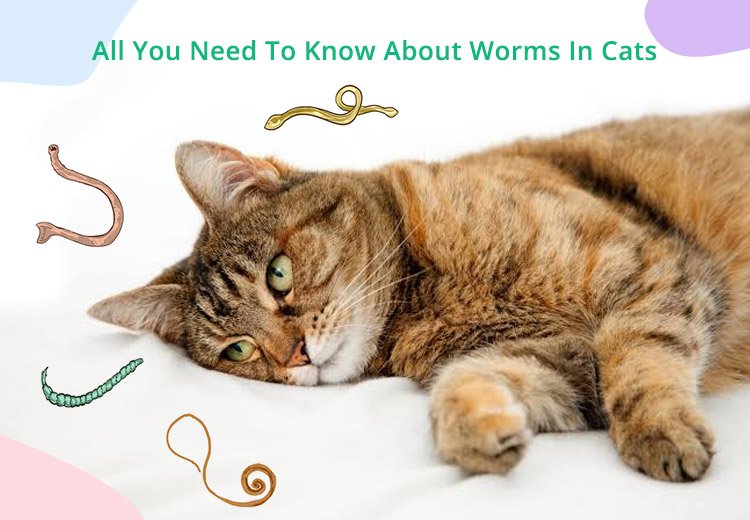 Aug 30, 2019
Aug 30, 2019

Varieties of pesky parasites are ever ready to hunt your cats. Intestinal parasites in cats known as worms can sometimes make cats suffer in silence. However, at times you might not even notice symptoms that may be deteriorating your cat’s health when these greedy interlopers are stealing a cat’s nutrition. Worms come in different shapes and size. They can be seasonal, limited to a specific cat population or specific to a region. Therefore, it is imperative for pet parents to know the most common worms in cats that can make your cat sick.

Roundworms are the most common worms seen in cats. Majority of kittens are born with roundworm larvae in their tissues which are transmitted to them from their mother. These roundworm larvae may get mature and develop in the intestinal tract which may pass through the stool and may re-infest other cats when they come in contact with the stool.

Well! When it comes to hookworms, dogs are more prone to it than cats. Just as the name suggests, they are hook-shaped worms which are often found in the small intestine of infected cats. Hookworms are smaller than roundworms and may not be visible in the litter box.

Tapeworms can grow inside the cat’s intestine when your cat swallows a flea that carries tapeworm larvae. Tapeworms are intestinal parasites that attach themselves to the cat’s small intestine. Tapeworm looks like a grain of rice and segments of it in cats may be seen in your cat’s bottom, in your cat’s feces or where your cat sleeps.

Generally, cats get infected by whipworms by swallowing infective substances that may contain the cat’s feces or soil. Whipworms are the intestinal parasites that reside in the cecum of a cat’s body, a part in their body where small and large intestine meets. There the whipworms pass their eggs in the cat’s feces.
How To Tell If Your Cat Has Worms
Here are few of the most common symptoms which indicate that your cat might have worms:
How To Treat and Prevent Worms
The very first step you need to take as a pet parent is to have your pet’s fecal exam and physical exam. Moreover, the biggest proactive step you can take is by protecting your cat with a year-around regimen from dewormers and flea and tick preventives. Popantel for cats, Mediworm, Antizole Liquid Suspension, and Triworm-C Dewormer are some of the best wormers for cats available at PetCareClub. Moreover, you can consider these points to prevent worm infection.
 Nov 06, 2023
Nov 06, 2023
Thanksgiving is just around the corner, and the festive excitement is in the air. But being a pet parent, you would also be worried about m...
 Oct 25, 2023
Oct 25, 2023
Observed throughout the month of November by pet lovers, National Pet Cancer Awareness Month is an ideal time to show extra love and suppor...